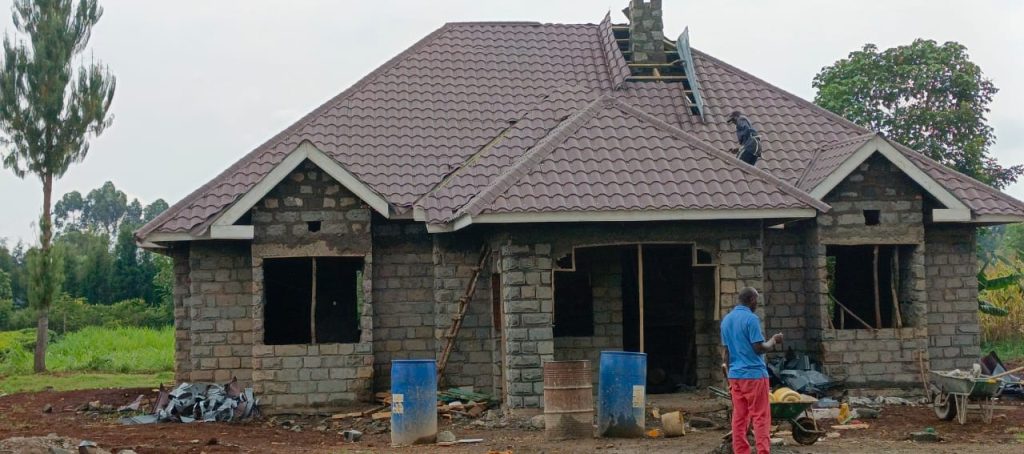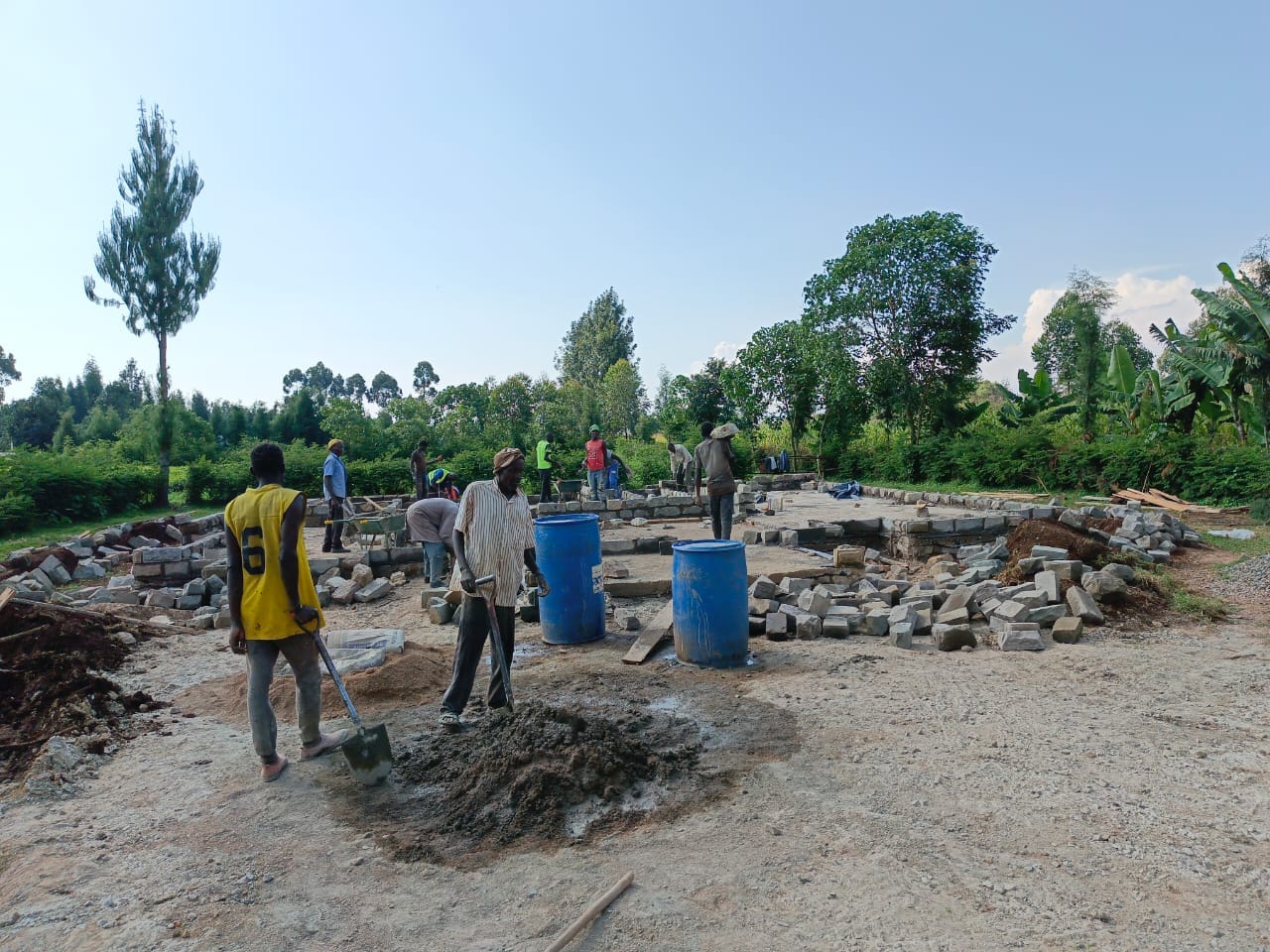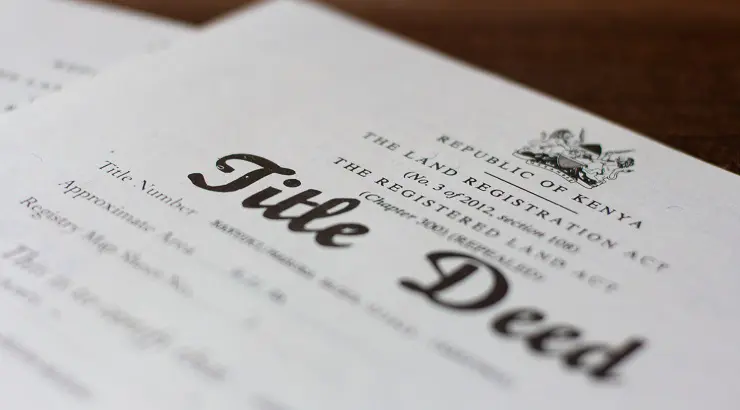Looking to buy land in Kenya? Learn how to safely purchase verified plots, understand legal steps, avoid scams, estimate costs, and find the best areas to invest confidently in 2025.
Introduction
Buying land in Kenya is one of the smartest and most secure investments today. As towns like Kitengela, Ruiru, and Nakuru continue to expand, land prices steadily rise, offering lasting returns and stability. Whether you’re planning to build a home, start a business, or invest for resale, understanding how to buy land in Kenya safely will help you avoid costly mistakes.
Why Buying Land in Kenya Is a Top Investment
Land in Kenya consistently appreciates, making it one of the best long-term assets.
It offers:
- High capital growth: Rapid development near major towns increases land value.
- Ownership freedom: You can build, lease, or hold land as desired.
- Low upkeep: Compared to rentals or businesses, land ownership needs minimal maintenance.
- Investing early allows you to benefit from new infrastructure such as roads, schools, and power connections.

Related post: How to Avoid Land Fraud in Kenya: A Step-by-Step Guide
Common Pitfalls to Avoid When Buying Land
Many first-time buyers lose money because they skip vital checks.
Avoid these mistakes:
- Paying before confirming title deed ownership through Ardhisasa.
- Dealing with unregistered or fake agents.
- Ignoring the Land Control Board (LCB) consent for agricultural land.
- Failing to visit the plot and confirm its boundaries and beacons.
Always verify documents, consult professionals, and make payments through traceable channels.
What This Guide Will Help You Achieve
By reading this guide, you’ll learn how to:
- Find genuine land for sale in Kenya.
- Verify ownership documents and approvals.
- Estimate total buying costs, taxes, and hidden fees.
- Avoid scams and complete a safe land purchase in Kenya.
This guide also includes expert tips on negotiating, hiring registered surveyors, and completing transfers smoothly.
Related post: How to Verify a Title Deed in Kenya: A Comprehensive 2025 Guide

Types of Land Ownership & Tenure in Kenya
Freehold vs Leasehold Explained
Land in Kenya is classified mainly as freehold or leasehold. Freehold gives you full, indefinite ownership, while leasehold offers ownership for a specific period—commonly 33, 50, or 99 years—after which it must be renewed.
Freehold is ideal for residential or private use, while leasehold applies mostly to urban and commercial areas under government control.
Customary and Trust Land Overview
Customary land is traditionally owned by communities and managed through clan or family structures. It cannot be sold freely without approval from the group members or the relevant authorities. Trust land, meanwhile, is held by county governments on behalf of local residents.
Buyers must confirm if the land has been converted from customary to private tenure before purchase.
Restrictions for Foreign Land Buyers in Kenya
Foreigners cannot own freehold land in Kenya but may lease land for up to 99 years. Joint ventures or registered companies with Kenyan majority ownership often make it easier for foreigners to invest legally in land.
Land Control Board (LCB) Consent for Agricultural Land
If you’re buying agricultural land, you must obtain LCB consent within six months of the sale agreement. This approval ensures the transaction complies with agricultural land laws and prevents illegal transfers.
Zoning and Land Use Classification (Residential, Commercial, Agricultural)
Kenyan counties classify land according to use—residential, commercial, agricultural, or industrial. Always check local zoning before purchase to ensure your intended use (e.g., building apartments or a farm) aligns with county regulations.

Where to Buy Land in Kenya & What Makes a Good Location
Top Emerging Areas to Buy Land (Kitengela, Athi River, Nakuru, Kisumu)
Some of the best areas to buy land in Kenya include Kitengela, Ruiru, Juja, Nakuru, and Kisumu. These towns are experiencing rapid infrastructure growth, new housing projects, and strong demand for residential plots.
Factors That Increase Land Value (Roads, Utilities, Amenities)
Land value rises where infrastructure improves. Roads, schools, hospitals, and power connectivity increase both livability and resale value. Areas near upcoming highways or industrial parks also see faster appreciation.
Environmental Checks — Flood Risk, Drainage & Terrain Stability
Before buying, inspect the land’s topography. Avoid flood-prone areas, unstable slopes, or wetlands. Request environmental reports and confirm whether the plot is suitable for construction or farming.
How County Zoning Affects Your Land’s Future Use
Each county in Kenya enforces zoning rules determining what can be built on certain plots. Check the zoning map at your county offices to avoid legal issues or demolition orders.
Related post: Cost of Land in Kiambu vs Machakos Counties (2025 Guide & Comparison)
How to Find Reliable Land Listings & Sellers
Trusted Online Portals (BuyRentKenya, Property24, Jiji)
Reliable online platforms like BuyRentKenya, Property24, and Jiji Kenya list verified plots for sale. Always cross-check listings and contact sellers directly to confirm authenticity.
Working With Registered Real Estate Agents or Developers
Use agents or developers registered with the Estate Agents Registration Board (EARB). Licensed professionals ensure transparency and handle due diligence correctly.
Verifying the Seller’s Identity and Ownership Documents
Always request the seller’s National ID, KRA PIN, and title deed copy. Cross-check this information on Ardhisasa or at the Ministry of Lands registry.
Conducting Site Visits and Community Checks
Visit the land in person and talk to neighbours or area chiefs. This helps confirm whether the seller genuinely owns the property and whether there are ongoing disputes.
Related post: Land Transfer Costs in Kenya Explained

Due Diligence: Verifying Title, Boundaries & Legal Status
Conducting a Title Deed Search via Ardhisasa or County Registry
Perform an official title deed search on Ardhisasa or your county land registry to confirm ownership and check for caveats. The search should match the seller’s name exactly.
Checking for Encumbrances, Caveats, and Disputes
Ensure the land isn’t used as collateral for loans or in a court dispute. A title search report will show encumbrances or pending issues that could block transfer.
Reviewing Survey Maps and Beacon Certificates
Request the survey map (RIM) and beacon certificate from a licensed surveyor. They confirm plot boundaries and prevent encroachment or double allocation.
Related post: Land Buying Process in Kenya – Step by Step (2025 Guide)
Physical Site Verification With a Licensed Surveyor
Engage an EBK-registered surveyor to visit the land, confirm beacon positions, and ensure the land matches the map details. Never skip this crucial step.
Legal Requirements & Essential Documents
Sale Agreement and Letter of Offer Explained
The Letter of Offer outlines the purchase terms before drafting a sale agreement. The Sale Agreement, prepared by a lawyer, details payment schedules, obligations, and conditions for transfer.
Required Seller Documents (Title Deed, ID, PIN, Land Rates Clearance)
Ensure the seller provides all key documents:
- Original title deed
- National ID and KRA PIN
- Land rates and rent clearance certificates
- Land search results confirming ownership
Spousal Consent, Succession, and Family Approval
If the seller is married, spousal consent is mandatory. For inherited land, ensure the succession process is complete and confirmed by the court to avoid future disputes.
Land Control Board Approval Process
Obtain LCB approval within six months of the sale agreement for agricultural land. Without it, the transaction becomes legally void.
Transfer of Ownership Documents and Stamping
After payment, lawyers prepare transfer documents, which must be stamped and registered at the Ministry of Lands. This process legally transfers ownership to the buyer.
Related post: What Type of Gated Community Can You Build with Kshs.70 Million in Athi River?
Costs, Fees & Hidden Expenses
Stamp Duty Rates and Calculation Examples
Stamp duty is one of the main costs when buying land in Kenya. It’s charged as a percentage of the property’s market value — 4% for urban land and 2% for agricultural or rural land.
For example, if you buy a KSh 2 million plot in Ruiru, you’ll pay KSh 80,000 in stamp duty. Always budget for this early to avoid delays.
Legal Fees, Registration, and Surveyor Charges
Legal fees usually range from 1% to 2% of the land value, depending on your advocate’s scale. Registration fees and surveyor charges add to the total cost — usually KSh 20,000 to KSh 50,000, depending on location and plot size.
Hidden Costs — Way-Leave, Utility Connections, Road Access
Hidden costs can surprise many buyers. These include way-leave approvals, connection fees for electricity and water, and contributions for access roads. Some gated communities also charge infrastructure levies for shared services.
Taxes and County Levies After Purchase
After purchase, you must pay annual land rates or rent to your county government. Some areas also charge planning fees before development approval. Keep receipts for all payments to avoid penalties.
Related post: What Apartment Can You Build with Ksh 40 Million in Ruaka? Unit Count, Rental Income & ROI Explained
Risks, Red Flags & How to Avoid Scams
Common Land Fraud Schemes in Kenya (Fake Plots, Double Sales)
Land fraud remains one of the biggest threats to buyers. Scammers may sell fake plots, duplicate title deeds, or resell the same land to multiple buyers. Always confirm ownership through a title search before paying anything.
Related post: How to Maximize Rental Income from Apartments in Nairobi (2025 Guide)
Red Flags When Dealing With Sellers or Agents
Be cautious if a seller:
- Refuses to show original ownership documents
- Pushes for a quick cash deal
- Avoids meeting at the actual site
- Demands payment before signing an agreement
These are strong signs of potential fraud.
Safe Payment Methods and Why Receipts Matter
Use bank transfers or lawyer-managed escrow accounts instead of cash. Always get an official receipt and an acknowledgement letter for every payment made. This protects you in case of legal disputes.
Legal Steps if You Suspect a Scam
If you suspect fraud, stop all payments and contact the DCI Land Fraud Unit immediately. Report the case with copies of agreements and receipts. You can also file a civil case to recover funds or block illegal transfers.
Related post: A Kshs 180 Million Apartment Design in Ruiru, Kiambu: Studio to 3-Bedroom Investment Opportunity
The Land Transfer Process & Timeline
Offer, Deposit, and Sale Agreement Signing
Once you identify a verified plot, sign a Letter of Offer and pay a deposit (usually 10%). Your advocate then drafts the Sale Agreement outlining the terms, timelines, and balance payment.
Obtaining Land Control Board Consent
If the land is agricultural, apply for LCB consent within six months. The Board reviews the sale to ensure it complies with land laws and isn’t fraudulent.
Paying Stamp Duty and Submitting Transfer Forms
Next, your lawyer prepares the transfer documents, which are assessed for stamp duty. Once the duty is paid, the documents are submitted for registration at the Lands Registry.
Title Registration and Collection at Lands Registry
After successful registration, the buyer’s name is officially entered into the land records. You can then collect the new title deed — proof of full ownership.
Typical Timeline From Offer to Ownership
A smooth transaction typically takes 30 to 90 days, depending on document availability and registry speed. Delays may occur if land searches or LCB approvals take longer.
After Purchase: Possession & Development
Taking Physical Possession and Fencing the Plot
Once ownership is confirmed, take immediate possession by fencing your plot. This prevents encroachment and signals legal control of the land.
Applying for Building Permits and County Approvals
Before starting construction, submit your building plans for approval at the county planning department. Ensure the plans meet zoning and building code requirements.
Connecting Water, Power, and Access Roads
Apply for Kenya Power and water connections early. In some areas, you may need to contribute to access road upgrades or drainage works.
Paying Annual Land Rates and Rent
Counties like Nairobi, Kiambu, and Nakuru require yearly payment of land rates or rent. Always clear these dues to avoid penalties or land repossession threats.
Long-Term Land Management and Security Tips
Maintain your land regularly by clearing bushes, inspecting beacons, and renewing fences. Store copies of all ownership documents in a safe, fireproof location.
Special Buyer Considerations & Advanced Topics
Buying Agricultural Land for Residential Conversion
If you intend to build homes on agricultural land, apply for a land use change through the county’s physical planning office. Unauthorised development may lead to demolition or penalties.
Understanding Way-Leave and Right-of-Way Issues
Way-leave rights allow utility companies to install lines or pipes across private land. Before buying, confirm if the land has existing way-leave agreements to avoid future restrictions.
Foreign Investor Land Ownership Rules
Foreigners can only lease land for up to 99 years and cannot own freehold property directly. However, registering a Kenyan-majority company can simplify the process.
Best Time of Year to Buy Land in Kenya
The best time to buy land is during dry seasons, typically January–March and July–October, when plots are easily accessible and prices are more negotiable.
How to Finance a Land Purchase in Kenya (Cash vs Loan)
You can pay in cash, through Sacco financing, or via a bank land purchase loan. Always compare interest rates and repayment terms before choosing a financing option.
Conclusion
Quick Recap of the Safe Land Buying Process
Buying land in Kenya is one of the best investment choices you can make — but only if you follow the right process. From confirming ownership via Ardhisasa to getting Land Control Board consent and ensuring proper documentation, every step protects your money and future.
Take time to verify all documents, work with licensed professionals, and visit the land physically before committing.
Key Takeaways — Verify, Engage a Lawyer, and Be Patient
Always confirm the title deed’s authenticity before paying a deposit. Involve a real estate lawyer or advocate in all transactions. Use registered surveyors to confirm boundaries. Be patient — rushing leads to mistakes or fraud.
Land buying in Kenya requires due diligence, but the rewards are long-term security and appreciation in value.
Call-to-Action — Download a Buyer Checklist or Get Expert Help
Ready to start your journey? Download our free Kenya Land Buyer Checklist and connect with trusted real estate experts, personalised and guided.
Frequently Asked Questions (FAQ)
- How can I verify a title deed using Ardhisasa or eCitizen?
You can verify ownership by logging into Ardhisasa or visiting your county lands registry. Enter the title number to check the registered owner, parcel history, and pending caveats.
- What is the role of the Land Control Board (LCB)?
The LCB must approve the sale of agricultural land before transfer to ensure both buyer and seller consent and that the land will be used properly.
- Can foreigners own land in Kenya, and what are the restrictions?
Foreigners can only own leasehold land (up to 99 years). They cannot buy freehold agricultural land unless through a registered company with Kenyan shareholders.
- What documents should I get from a seller before paying?
Ensure you collect:
- Original title deed
- Seller’s ID and KRA PIN
- Land rates clearance certificate
- Signed sale agreement and consent forms
- How much is stamp duty when buying land in Kenya?
Stamp duty is:
- 4% of the property value for urban areas
- 2% for rural areas
It’s paid to KRA before the transfer registration.
- What hidden costs should I expect beyond the purchase price?
Include fees for lawyers, surveyors, valuation, county rates, and utility connections. Always budget 10–15% above the plot price for smooth processing.
- How long does the land transfer process take?
Typically, it takes 30–90 days, depending on document readiness and county approval speed. Avoid shortcuts — they often cause legal issues later.
- What are the main signs of land fraud in Kenya?
Be cautious if:
- The seller avoids meeting at the land office.
- Documents look altered or inconsistent.
The price is suspiciously low.
Always verify directly at the registry or via a lawyer before payment.




8 thoughts on “How to Buy Land in Kenya: A Safe, Complete Step-by-Step Guide”
Comments are closed.